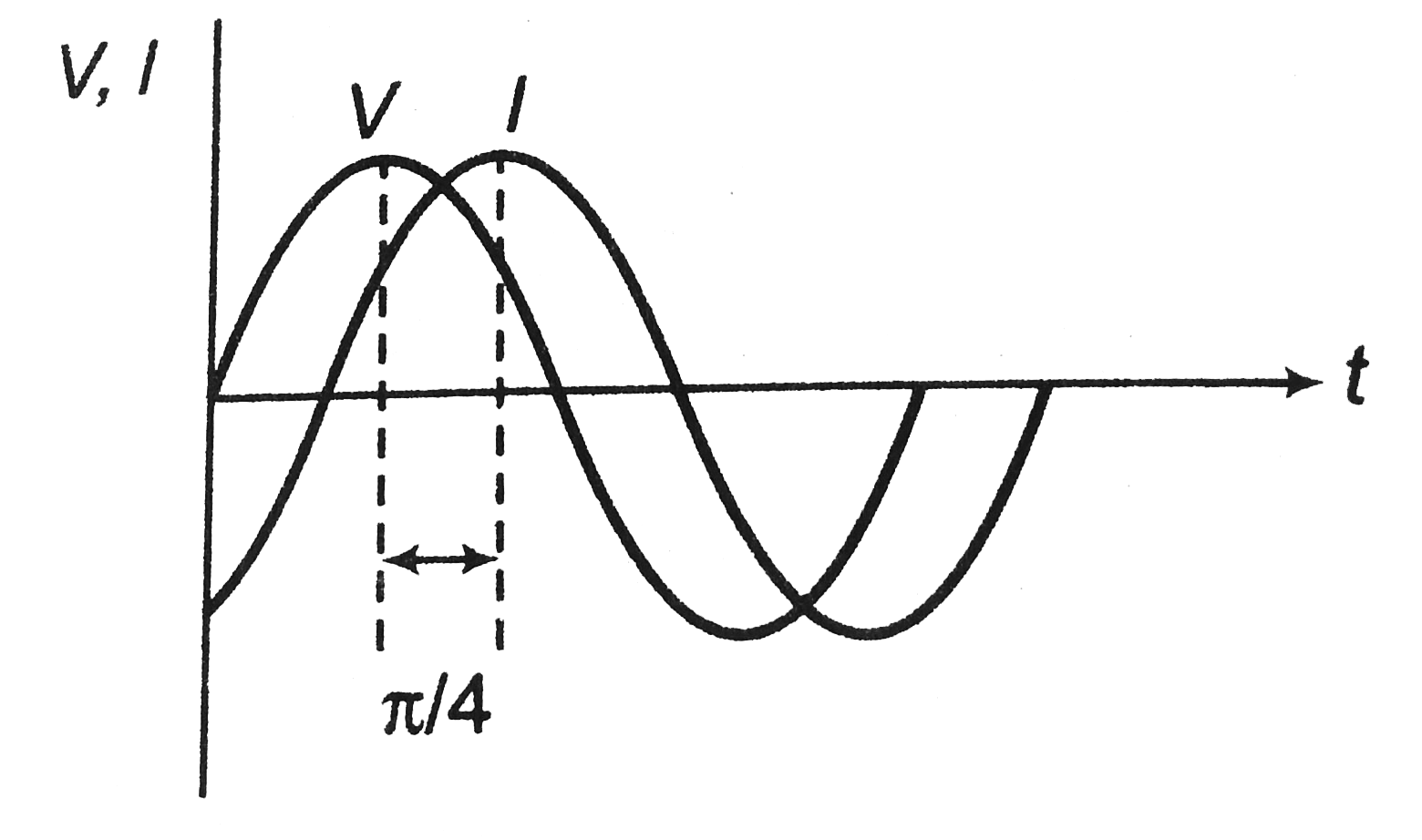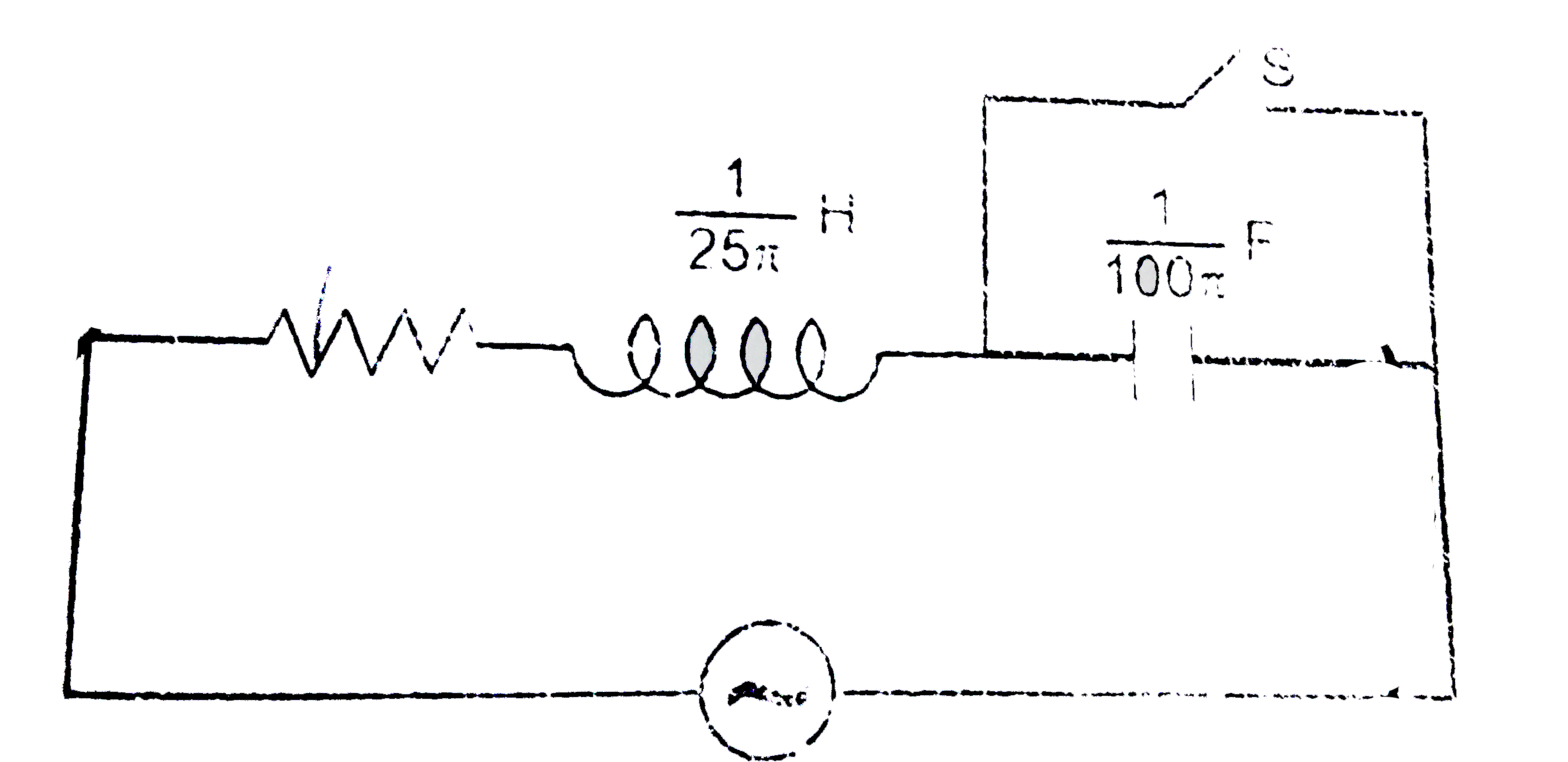An Ac voltage V=V0sin100t is applied to the circuit, the phase difference between current and voltage is found to be π4, then
 .
.
R = 100 Ω, C= μF
R = 1kΩ , C = 1μF
R = 10kΩ , L = H
R = 1 kΩ , L = 10H.
The correct Answer is:B
In the given graph current is leading the voltage by 45∘. Therefore circuit is C-R.
tanϕ = XCR and ϕ=π4
∴XC=R
⇒ωCR = 1
⇒CR=1ω=1100
When , R = 1kΩ = 103Ω, then
C=110=10−5F=10μF.
Similar Questions
A seriesLCR circuit is connected to an ac voltage source. When L is removed from the circuit, the phase difference between current and voltage is π3. If instead C is removed from the circuit phase difference is agin π3 between current and voltage. Power factor of circuit is:
View SolutionWhen a voltage Vs=200√2sin(100t)V is applied to an ac circuit the current in the circuit is found to be i=2sin[ωt+(π/4)]A. Find the average power consumed in the circuit.
View Solution
Knowledge Check
In a LCR series circuit, if the phase difference between applied voltage and current is zero then
AXL=XCBXL>XCCXL<XCDnone of theseIn an AC circuit voltage applied is e=220 sin 100 t. if the impedance is 110Ω and phase difference between the current and voltage is 60∘ the power consumption is equal to
A55 WB110 WC220 WD330 WIn an electrical circuit R,L,C and an AC voltage source are all connected in series. When L is removed from the circuit, the phase difference between the voltage and the current in the circuit is π/3. If instead, C is removed from the circuit, difference the phase difference is again π/3. The factor of the circuit is
A12B1√2C1D√32
In an a.c. circuit average power consumed depends on the phase difference between current and voltage in the circuit.
View SolutionA coil of self-inductance (1π)H is connected is series with a 300Ω resistance. A voltage of 200V at frequency 200Hz is applied to this combination. The phase difference between the voltage and the current will be
View SolutionA generator of 100 V (rms) is connected in an ac circuit and 1 A (rms) current is flowing in the circuit. If the phase difference between the voltage and the current is π/3. then the average power consumption and the power factor of the circuit will be –
View SolutionPhase difference between voltage and current in a capacitor in an ac circuit is
View SolutionIn the LCR circuit shown in figure unknown resistance and alternating voltage source are connected.When swith S is closed then there is a phase difference of π4 between current and applied voltage and voltage across resister is 100√2V.When switch is open current and applied voltage are in same phase.Neglecting resistance of connecting wire answer the following questions :
Peak voltage of applied voltage sources is:

View Solution
